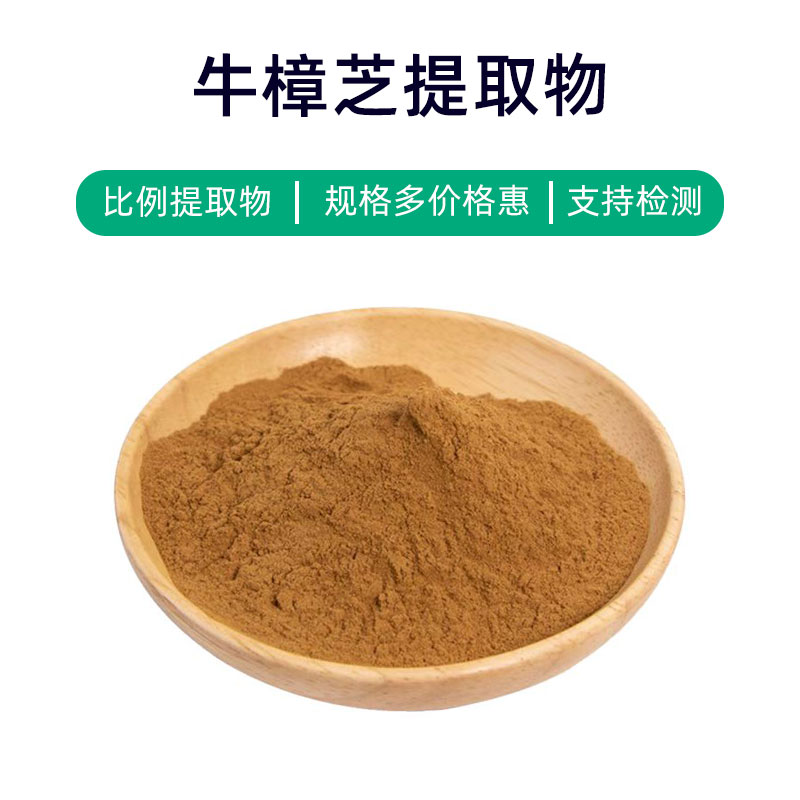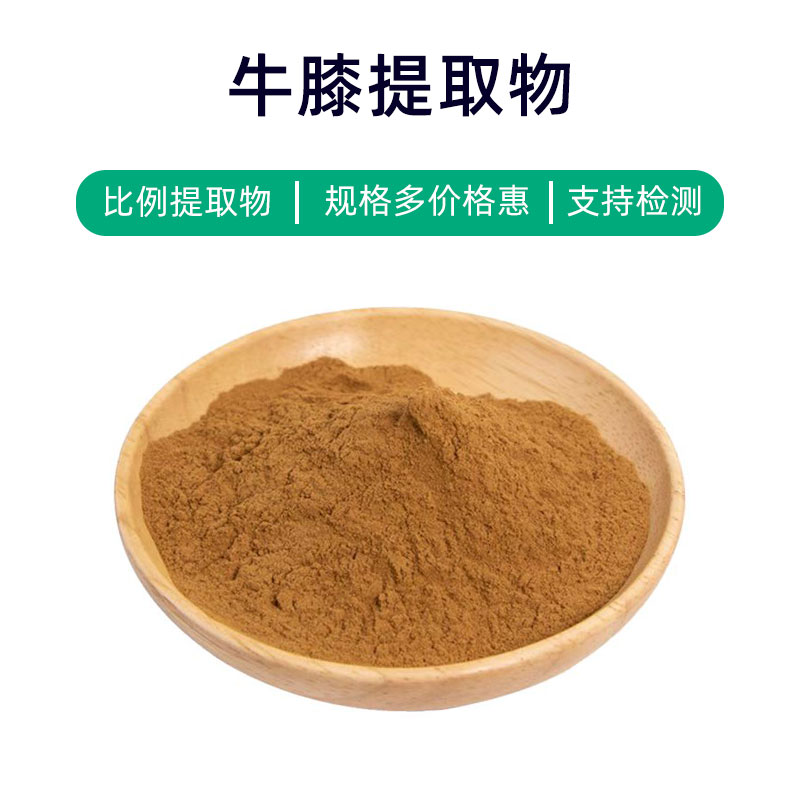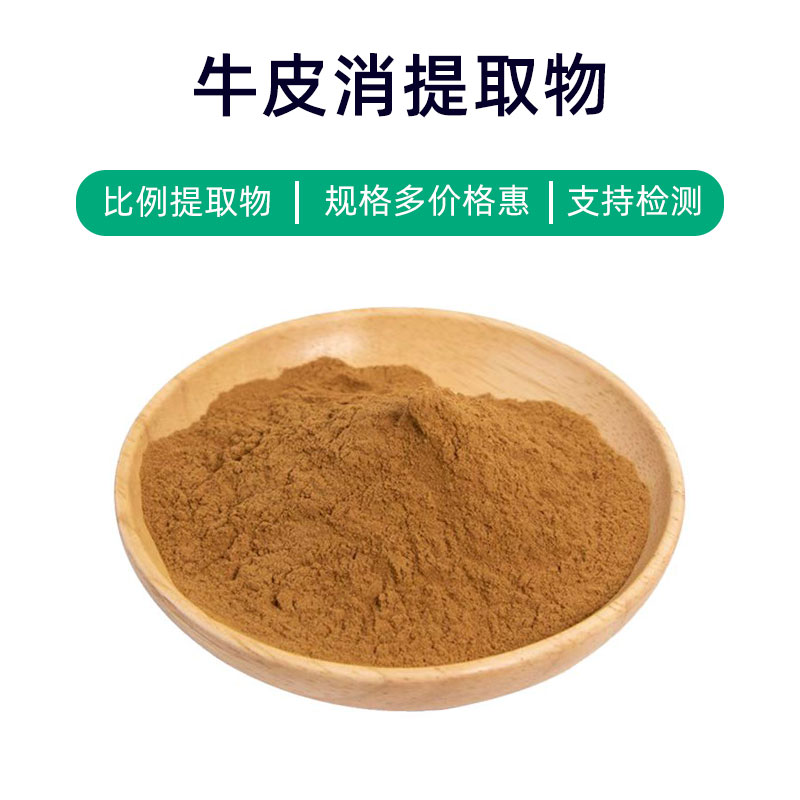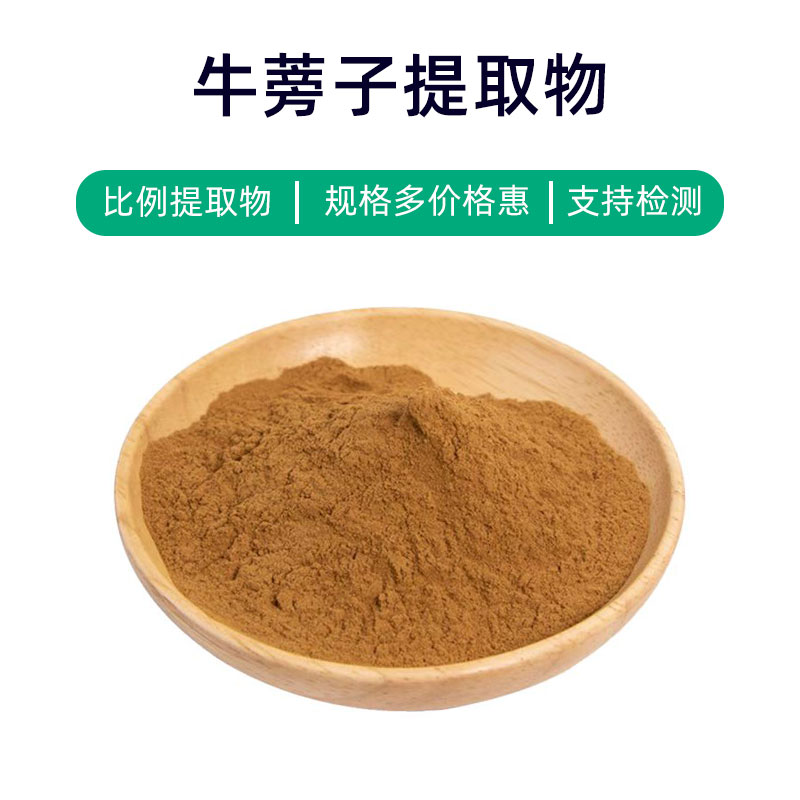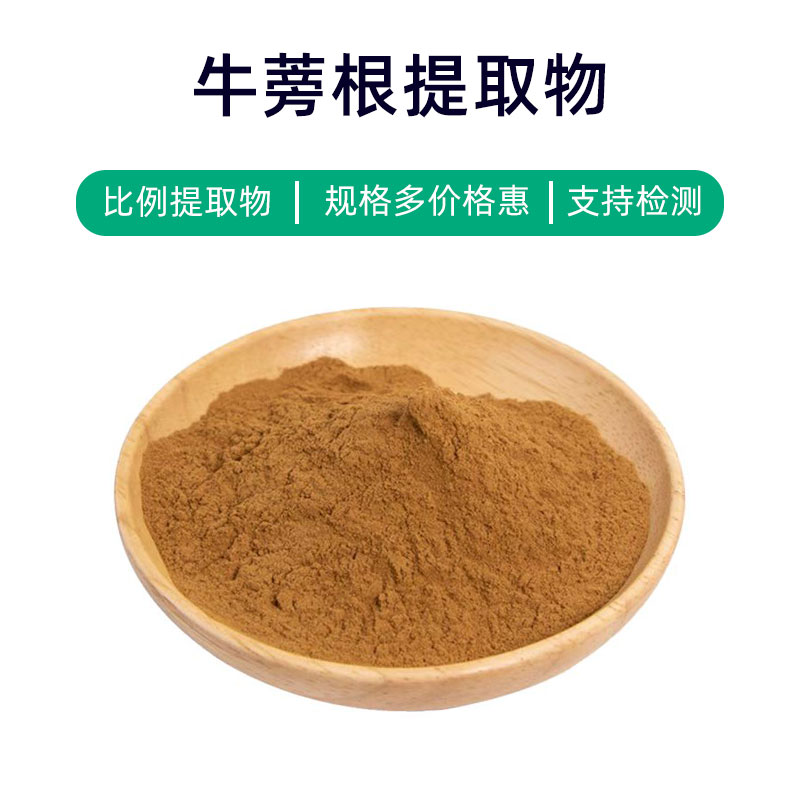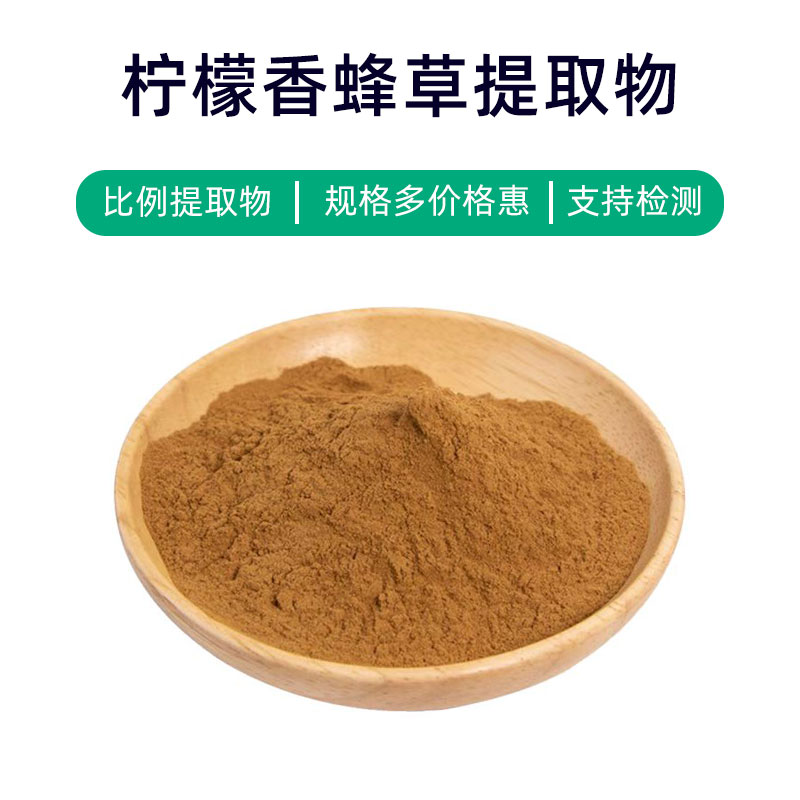Product Introduction of Lotus Seed - Sweet Burdock Extract
Lotus Seed - Sweet Burdock Extract is a natural plant extract rich in polyphenols, flavonoids, polysaccharides, and vitamins. These components provide the product with various benefits:
- Antioxidant Properties: Contains abundant polyphenols that effectively combat free radicals, helping to protect the skin from damage and slow down the aging process.
- Anti-inflammatory and Soothing: Flavonoids possess anti-inflammatory properties that relieve skin inflammation, soothe sensitive skin, and reduce discomfort.
- Moisturizing: Polysaccharides help retain moisture, increasing the skin's hydration levels and leaving it smooth and supple.
- Whitening and Spot Reduction: Some components inhibit melanin production, making it suitable for products aimed at whitening and reducing spots, improving uneven skin tone.
Lotus Seed - Sweet Burdock Extract is widely used in cosmetics, skincare products, and personal care items such as creams, serums, masks, and shampoos. It can be added as an active ingredient, enhancing products with its antioxidant, anti-inflammatory, moisturizing, and whitening benefits to improve skin condition and increase product appeal.
Production Process of Lotus Seed - Sweet Burdock Extract
The production process for Lotus Seed - Sweet Burdock Extract typically includes the following main steps:
- Raw Material Preparation: High-quality lotus seeds and sweet burdock are selected, cleaned, and pre-treated to ensure quality and purity.
- Maceration or Solvent Extraction: The processed raw materials undergo maceration or solvent extraction to draw out target components like polyphenols and flavonoids using water or specific organic solvents.
- Filtration and Separation: The extract is filtered to remove solid impurities, followed by separation and concentration to obtain the concentrated extract.
- Drying and Milling: The concentrated liquid undergoes drying, usually by spray drying or vacuum concentration, transforming it into a powdered form. The powder is then milled to ensure particle size meets product requirements.
- Quality Testing: The produced Lotus Seed - Sweet Burdock Extract undergoes quality testing, including active ingredient content, microbial levels, and heavy metals, to ensure it meets relevant standards and regulations.
- Packaging and Storage: The qualified extract is packaged, typically in airtight containers to prevent exposure to air, moisture, and light, ensuring product stability and preservation of active ingredients. Store in a cool, dry place, away from direct sunlight.
The entire production process requires strict control of various parameters and conditions to ensure product quality and stability, meeting customer and market demands.
Benefits and Side Effects of Lotus Seed - Sweet Burdock Extract
Lotus Seed - Sweet Burdock Extract is a natural plant extract with several benefits, primarily including:
- Antioxidant Effects:
- Rich in polyphenolic compounds, it possesses significant antioxidant capabilities, neutralizing free radicals and protecting cells from oxidative damage.
- Helps slow down skin aging, reducing the formation of wrinkles and fine lines, making the skin appear younger and healthier.
- Anti-inflammatory and Soothing:
- Flavonoids, essential components in the extract, provide anti-inflammatory and soothing effects.
- Alleviates skin inflammatory responses, reducing redness and itching, which is beneficial for sensitive skin.
- Moisturizing:
- Polysaccharides offer excellent moisture-retaining effects, increasing skin hydration and keeping it supple.
- Particularly effective for dry skin, improving issues like dryness and roughness, resulting in soft and smooth skin.
- Whitening and Spot Reduction:
- Some components inhibit melanin production, making it suitable for whitening products.
- Reduces the emergence of spots, addressing uneven skin tone, resulting in brighter and more uniform skin.
- Side Effects:
- Generally, as a natural extract, side effects are minimal.
- However, some individuals may experience allergic reactions, hence a patch test is recommended before use. Discontinue if any allergic symptoms occur.
Overall, Lotus Seed - Sweet Burdock Extract is widely used in skincare and cosmetic products. Its antioxidant, anti-inflammatory, moisturizing, and whitening effects make it a popular natural skincare ingredient. Selecting suitable products based on individual skin types and conditions is essential to avoid allergic or adverse reactions.
Application Scenarios and Dosage of Lotus Seed - Sweet Burdock Extract
Lotus Seed - Sweet Burdock Extract has various applications and dosages across the pharmaceutical, food, and cosmetic sectors, which are detailed below.
Applications in the Pharmaceutical Field
- Anti-inflammatory and Antioxidant:
- Application Scenario: Often used in topical ointments, gels, or sprays to treat skin inflammation, eczema, acne, and other inflammatory skin issues.
- Dosage: Generally, the extract is added to medication bases at a rate of 2%-5%, applied to the affected area.
- Skin Care:
- Application Scenario: Incorporated into skincare products such as creams, serums, and masks for moisturizing, antioxidant, and soothing effects.
- Dosage: Recommended usage is 1%-3% of the total product formulation, adjusted based on skin type and needs.
Applications in the Food Industry
- Natural Colorant:
- Application Scenario: Used as a coloring agent for food, giving it a natural hue, commonly found in juice drinks and baked goods.
- Dosage: Varies based on the type of food, typically 0.01%-0.1% of the total formulation.
- Health Supplements:
- Application Scenario: Used as an additive in health products to boost immunity and improve gut health.
- Dosage: Added according to the formulation requirements of health products, usually at 0.1%-0.5% of the overall formulation.
Applications in the Cosmetic Field
- Skincare Products:
- Application Scenario: Added to creams, lotions, and serums for moisturizing, antioxidant, and soothing purposes.
- Dosage: Generally recommended at 1%-3% of the total formulation, adjusted based on skin type and requirements.
- Beauty Products:
- Application Scenario: Used in whitening products and anti-aging products to enhance skin tone and reduce spots.
- Dosage: Whitening products typically contain 2%-5%, while dosage for anti-aging can be adjusted according to formula requirements.
Overall, Lotus Seed - Sweet Burdock Extract is widely applied in pharmaceuticals, food, and cosmetics, but attention should be paid to dosage control, quality testing, and appropriate formulation to ensure the safety and efficacy of products.
Introduction, Distribution, and Growth Environment of the Source Plants of Lotus Seed - Sweet Burdock Extract
The source plants of Lotus Seed - Sweet Burdock Extract are lotus seeds and sweet burdock (scientific name: Arctium lappa). Below is a detailed introduction to these two plants' characteristics, distribution, and growth environment.
Lotus (Scientific Name: Nelumbo nucifera)
- Characteristics:
- A perennial aquatic plant belonging to the family Nelumbonaceae.
- Features large plants with round leaves floating on the water surface, and large, beautiful flowers available in various colors.
- Distribution:
- Native to China and the Indian subcontinent, now widely cultivated around the world.
- In China, mainly found in regions like Jiangnan, the Yangtze River basin, and the southeastern coastal areas.
- Growth Environment:
- Thrives in freshwater lakes, ponds, and rivers with good water quality, preferring warm and moist climates.
- Requires ample sunlight but can adapt to semi-shady conditions.
Sweet Burdock (Scientific Name: Arctium lappa)
- Characteristics:
- A perennial herbaceous plant belonging to the Asteraceae family.
- Features tall plants with erect stems, large broad leaves, small flowers clustered in spherical heads, and a thick root.
- Distribution:
- Native to the Eurasian continent, mainly found in Asia, Europe, and North Africa.
- In Asia, distributed across China, Japan, and Korea; in Europe, found in France, Germany, the UK, etc.; in North Africa, present in Morocco and Algeria.
- Growth Environment:
- Prefers well-drained, fertile soil with moderate soil requirements, able to grow in neutral to alkaline conditions.
- Highly adaptable to climate, growing in warm to cold conditions, though it does not tolerate drought well.
- Thrives in ample sunlight but can survive in semi-shady or shaded environments.
In summary, lotus and sweet burdock, the source plants for Lotus Seed - Sweet Burdock Extract, have distinct characteristics, distribution, and growth environments. However, both demonstrate a degree of adaptability to their growing conditions, providing rich raw material resources for extracting beneficial components.
Processing and Storage of Lotus Seed - Sweet Burdock Extract
The processing of Lotus Seed - Sweet Burdock Extract typically involves several steps: first, collecting and cleaning the lotus seeds and sweet burdock; then, conducting maceration or solvent extraction to obtain target components; followed by filtration, concentration, drying, and other processes to ultimately yield the extract. For storage, it is advisable to keep the extract in a cool, dry environment, protected from direct sunlight and moisture, and stored in a sealed container to ensure the stability of its active ingredients.
Monica Sun is a seasoned expert in the plant extraction industry with over a decade of experience in research and production. She specializes in the extraction and purification of plant active ingredients, focusing on driving innovation in natural product applications. Monica has participated in the development of multiple functional plant extracts, delivering high-value natural raw material solutions for the health food, pharmaceutical, and dietary supplement sectors.









